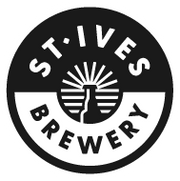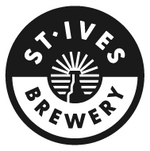Crafting the Perfect Brew: How we produce our Cornish Craft Beer
Cornish beer, celebrated for its unique flavours and connection to the beautiful region of Cornwall, is a delightful subset of the craft beer industry. We want to take you through the stages of craft beer production, helping you better understand the craftsmanship and dedication that go into each pint of our best Cornish IPA, pale ale and pilsners.
Stage 1: Recipe Development
All of our beers start with a creative spark. Our head brewer Callum starts by developing a unique recipe that captures the essence of Cornwall and a particular beer he is trying to create. This involves selecting the types and quantities of malted barley, hops, yeast, and water that will form the foundation of the new Cornish beer. The recipe is carefully crafted to achieve the desired flavour, aroma, colour, and alcohol content, making each one a unique experience and flavour profile.
Here's what Callum has to say about brewing craft beer here in Cornwall.
"The process of brewing exceptional craft beer is part science in marriage with creativity, that's why we take great pride in our brewing process here at St Ives Brewery. It is these processes and attention to detail that ensures quality whilst allowing for innovation, character and unique beer inspired by Cornwall and it's changing seasons."

Stage 2: Malting and Milling
The first physical step in crafting beer is malting. Barley grains are soaked in water, allowed to sprout, and then dried in a kiln. This process activates enzymes that convert the starches in the barley into fermentable sugars. Once the barley is malted, it is milled to break the grains into smaller pieces, exposing more surface area for the brewing process, ensuring the distinctive taste of Cornish beer is captured.

Stage 3: Mashing - The Heart of Cornish Beer Production
In the heart of our beer production, the milled barley, known as grist, is mixed with hot water in a process called mashing. This activates enzymes in the malt, which convert the starches into sugars. The result is a sweet liquid known as wort, which is the base for the craft beers. The temperature and duration of mashing are carefully controlled to achieve specific characteristics in the final product.
Stage 4: Boiling and Hopping
Meor, our Cornish IPA is one of the standout beers, and requires special attention during the boiling stage. After mashing, the wort is boiled, and carefully selected hops are added. Hops not only contribute bitterness but also impart the distinctive aroma and flavour that make this Cornish IPA so popular. The boiling process sterilizes the wort, and during this stage, the brewer can add various hop varieties at different times to create a wide range of flavours and aromas, from floral and citrusy to earthy and spicy, ensuring that all our beers achieve the flavour that they aim to. We are highly focused on creating great hop aromas, so at this stage we use a second vessel to whirlpool our hops at a specific temperature. This helps to tease out those all important aromas.

Stage 5: Fermentation - The Magic Behind the Beer
Once the wort is boiled and hopped, it's cooled and transferred to fermentation tanks. Specially selected yeast strains are introduced, and fermentation begins. Yeast consumes the sugars in the wort, producing alcohol and carbon dioxide. This stage can last from a few days to several weeks, depending on the style of craft beer. The choice of yeast strain and fermentation temperature significantly influence the beer's final flavour and aroma.

Stage 6: Conditioning and the Distinctive Taste
After primary fermentation, some beers undergo a secondary fermentation or conditioning phase. This can take place in the same tank or in separate vessels. During this time, flavours mellow, and the beer clarifies as yeast and other particulates settle out, resulting in the distinctive taste and clarity that characterize Cornish beer.
Stage 7: Filtration, Packaging, and Distribution
Once our beer reaches the desired flavour and clarity, it's time to prepare it for packaging. This often involves filtration, although we don't use a filter but rather a modern centrifuge to remove any remaining solids or yeast. We naturally carbonate our beer during the fermentation stage, but should a beer need it we will add more at this point. The finished Cornish craft beer is ready to make its way to consumers, both within Cornwall and beyond.
Stage 8: Enjoyment
The final and most enjoyable stage of production is when customers get to enjoy the fruits of Callum’s labour. Craft beer aficionados and those seeking beer from Cornwall appreciate the variety of flavours, styles, and aromas available, from crisp pilsners to rich stouts via IPAs and pale ales.
Craft beer production is a blend of artistry and science, where brewers experiment with ingredients and techniques to create unique and memorable beers. The next time you sip on a Cornish beer, take a moment to appreciate the journey it taken from recipe development to your glass. Cornish beer is more than just a beverage; it's a testament to the passion and dedication of those who craft it, capturing the essence of Cornwall one pint at a time.







